Extiri Blog
From Theory to Practice: 5 Platforms That Turn Learning Into Doing
Ever feel stuck in tutorial hell - watching endless videos but never actually applying what you learn? I’ve been there too. Books and courses are fantastic - they give structure, context, and explanations - but real understanding often comes when you actually do it.
Over time, I’ve discovered several platforms that take concepts from theory to hands-on experience. Each one is free and ready to help you practice and internalize what you learn.
1. CryptoHack – Experiment with Cryptography
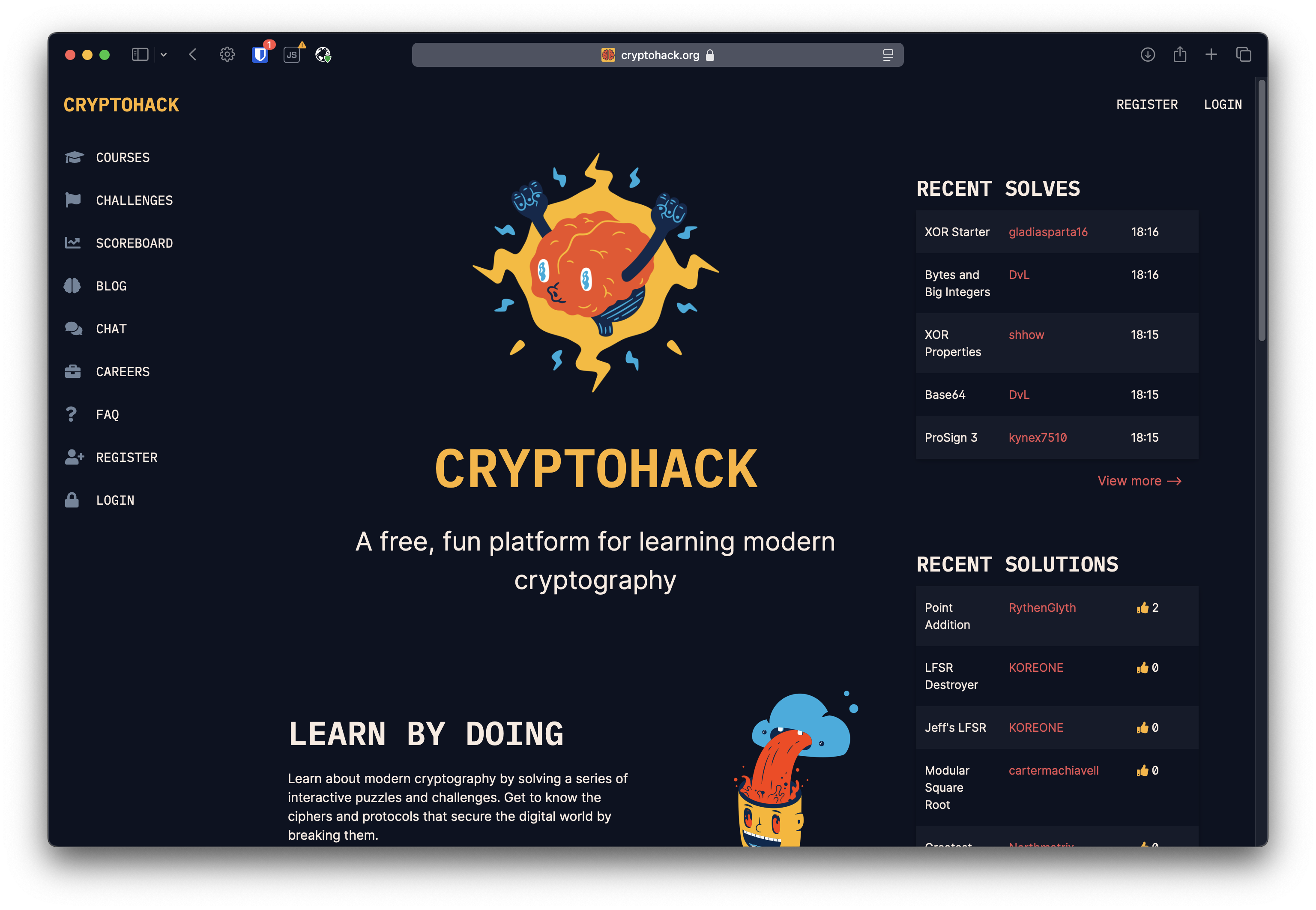
Cryptography has always fascinated me. Recently, I wanted a way to practice it beyond reading theory, and that’s when I found CryptoHack.
CryptoHack offers challenges that let you experiment directly with cryptographic algorithms. From XOR operations to RSA attacks, you get to see how the theory works in practice. They also have structured introductory courses if you want guided learning.
2. iximiuz Labs – Hands-On DevOps
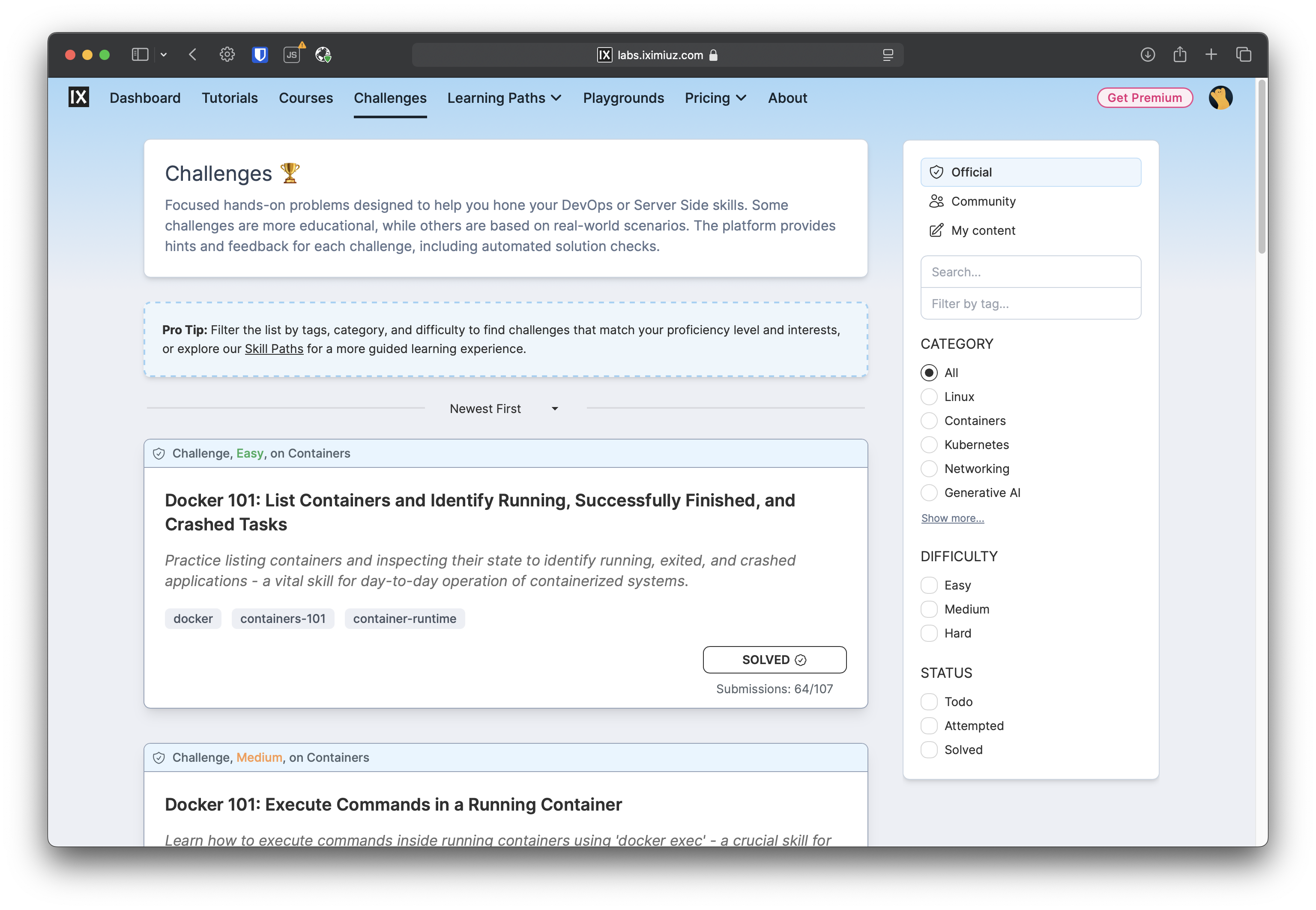
I often learn Linux or Docker from blogs or books - but the moment it clicks is when I actually spin it up. That’s where iximiuz Labs comes in.
This platform provides practical challenges in Linux, Docker, and Kubernetes. Each challenge is designed to let you solve real-world tasks, deepening your understanding of the concepts while keeping it safe in a sandboxed environment.
3. Deep-ML – Understand Machine Learning From the Inside
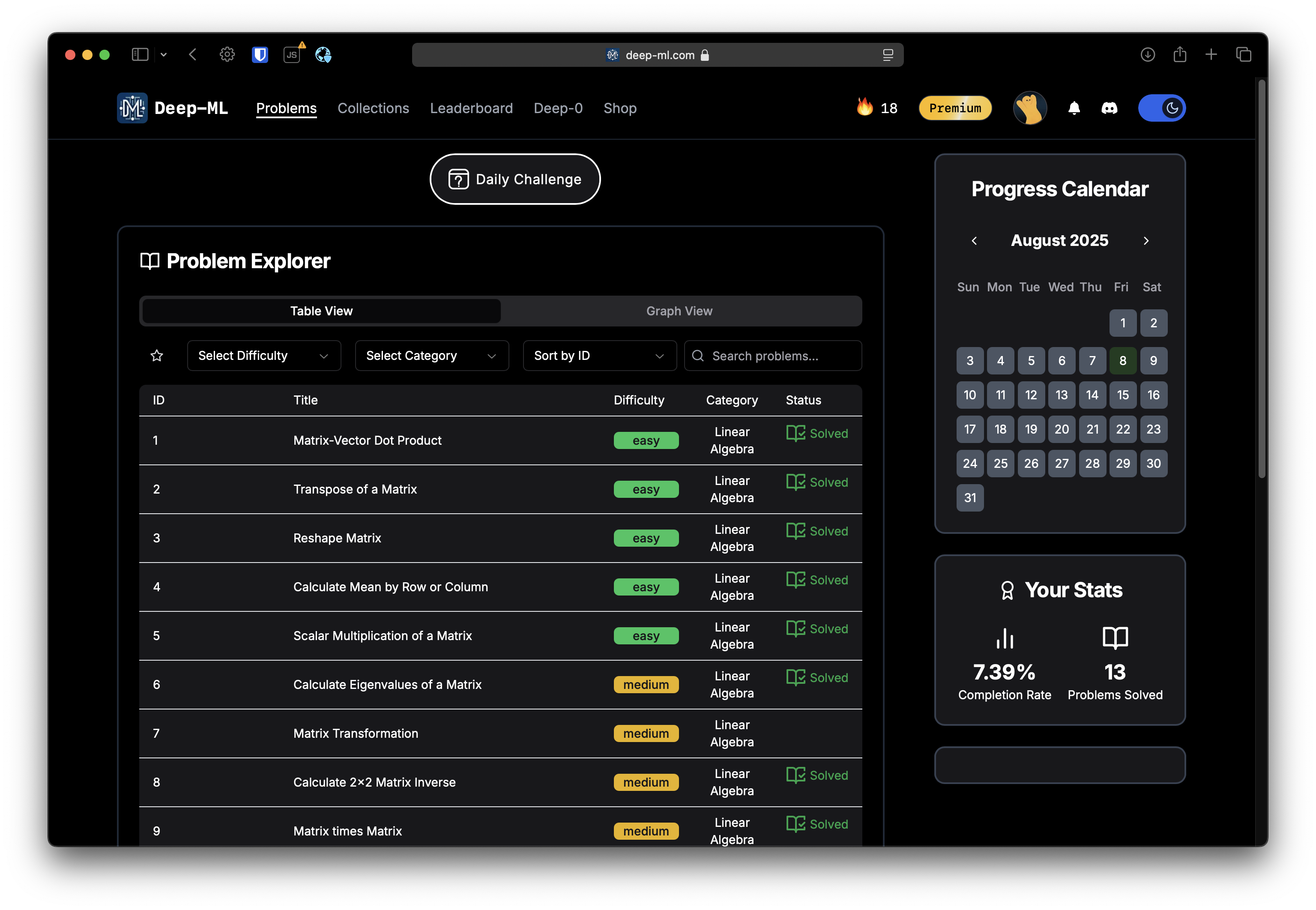
Reading about PCA, neural networks, or gradient descent is one thing - but implementing them yourself is where understanding solidifies.
Deep-ML offers machine learning and deep learning challenges crafted to make you code the algorithms yourself. It’s a structured playground that helps you see how the math and theory translate into real computation.
4. WebGPU Puzzles – Feel Parallel Execution
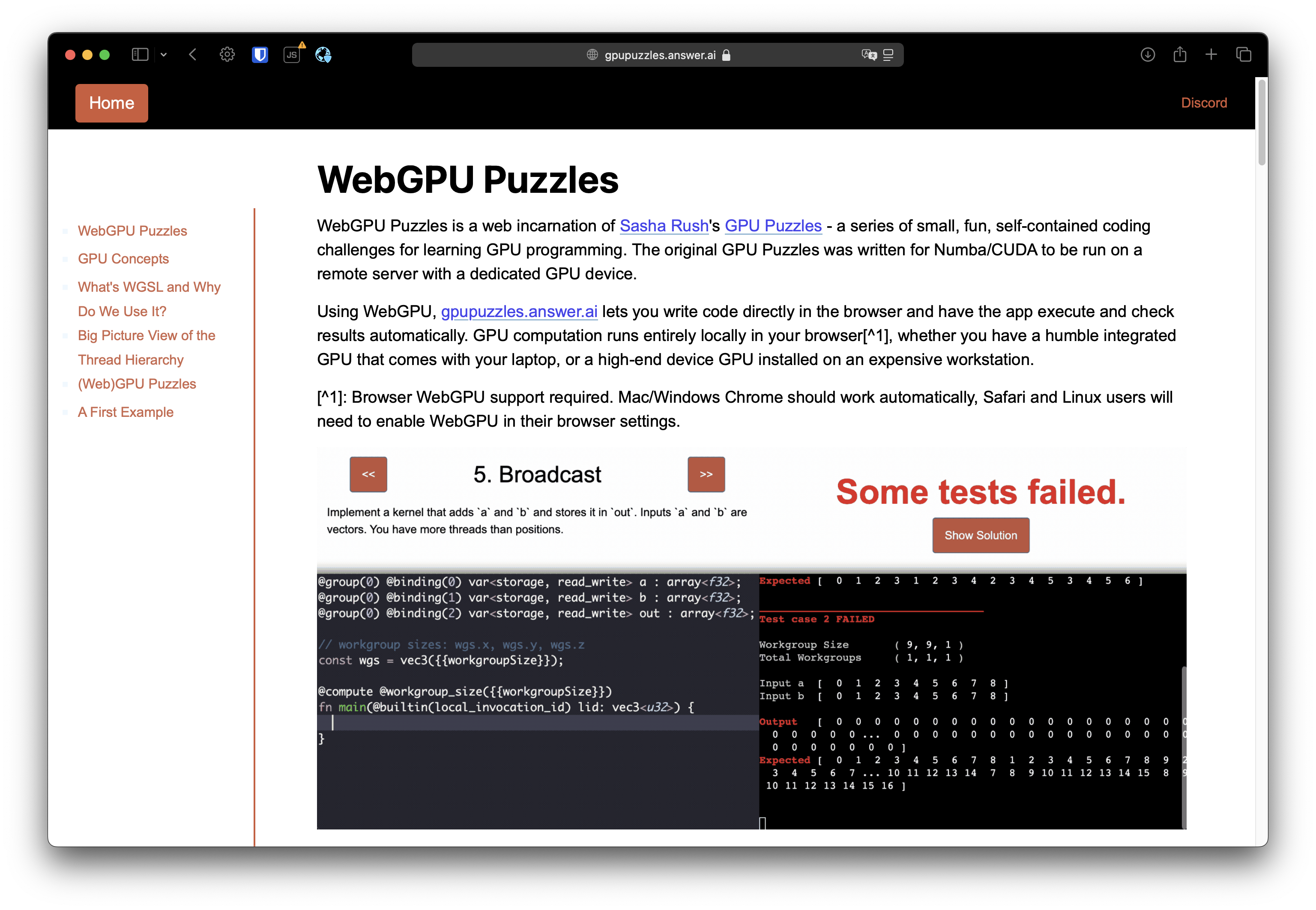
GPU programming can feel abstract until you run code yourself. WebGPU Puzzles brings WGSL coding directly to your browser, no installation required.
Through small compute puzzles, you dispatch GPU threads and see parallel execution in action. It’s a surprisingly intuitive way to get a tactile feel for GPU computing fundamentals.
5. Project Euler – Sharpen Your Mathematical Thinking
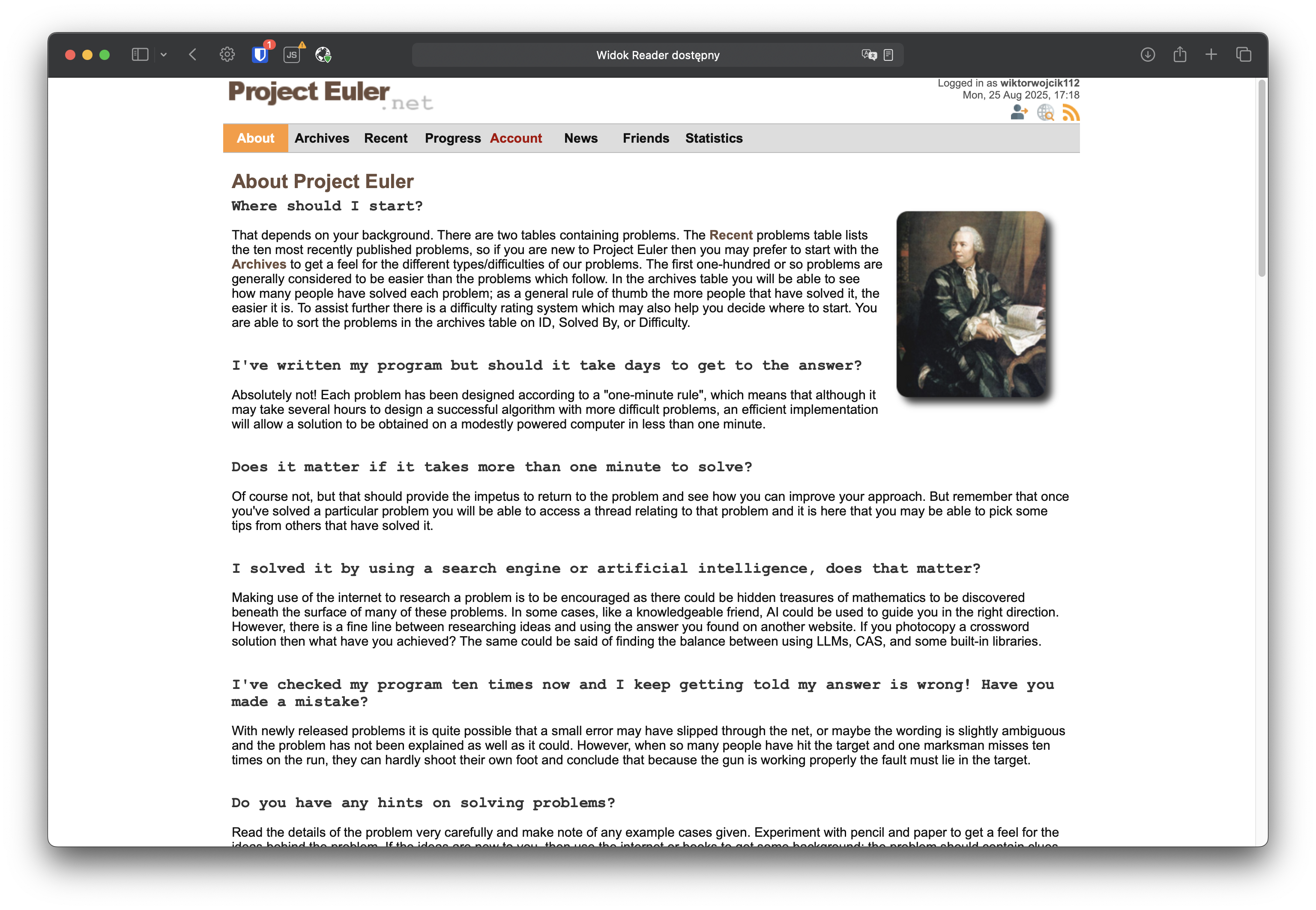
Reading about algorithms is useful - but solving them is transformative.
Project Euler offers small, elegant math-and-programming problems that make you think algorithmically. I use it especially to train my mathematical thinking, and each solved problem feels like a small victory that reinforces the concepts I’ve learned.
Hands-On Learning Matters
Books, blogs, and courses give you the foundation. Hands-on practice turns that knowledge into skill. These platforms have helped me solidify concepts, see results instantly, and stay motivated by giving tangible accomplishments along the way.
I hope they do the same for you. Dive in, experiment, fail, fix, and learn - your brain will thank you.